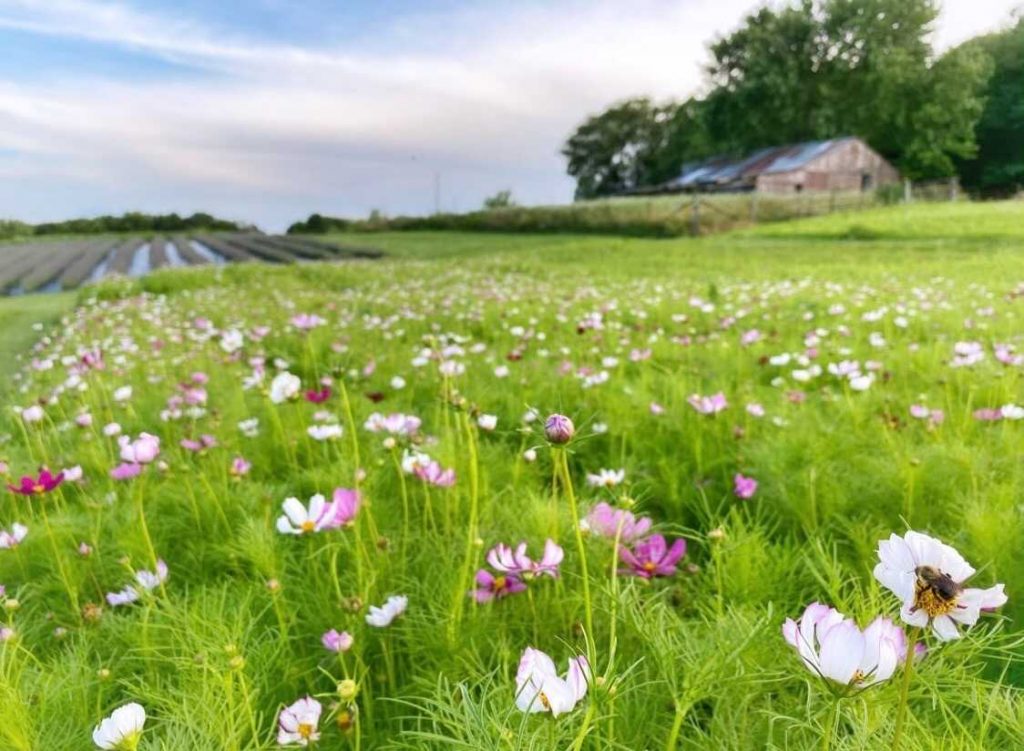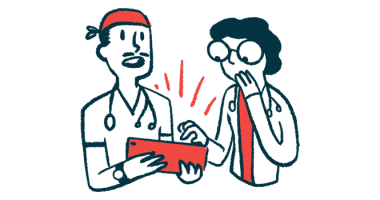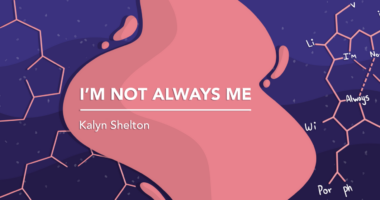COVID-19 Canceled My Wedding, and That’s OK

The COVID-19 pandemic canceled a wedding we had scheduled for last June.
When my fiancé, Michael, and I told friends and family abut our decision to postpone the ceremony, we were met with tons of sympathy. The sentiment was incredibly thoughtful, almost over the top. The thing was, I didn’t feel disappointed.
Dumbfounded by my response to the whole thing, I took some time to sit with my feelings. Beyond the guilt of canceling on all the local artisans we had hired to make our day super special, what I felt was … indifference.
This was not at all the response I had expected after canceling one of the most important days of my life. A day, I might add, I had spent the previous several months planning for.
What am I, an ice queen? Am I ungrateful for the beautiful dress my grandma bought me? Isn’t this the day I’ve been looking forward to for years?
Then it dawned on me.
I live with acute hepatic porphyria, and I navigate unpredictability every day. I’m familiar with last-minute schedule adjustments, from shifting meetups with friends to canceling vacations. I’ve learned to set my expectations when I make plans, because if I don’t roll with the punches, I would be sad all the time.
This life strategy is easy enough in theory, but it doesn’t change the fact that missing important events with people I love is challenging.
Early in my porphyria journey, canceling or changing big plans would leave me wracked with guilt and consumed by disappointment. Eventually, as I began to embrace my chronic illness and accept its limitations, I learned I cannot disregard these moments completely. Instead, I can choose to experience them differently. I can create rituals that honor both my body and my heart.
Once Michael and I chose to postpone our wedding, we decided to observe the day in a different, but meaningful, way. So, when Saturday, June 13th rolled around, we slept in, then packed up some peanut butter sandwiches and took the kids to a flower farm.
On this breezy summer day, we drove south, past the covered bridges of Madison County and just beyond historic downtown Winterset, where PepperHarrow Flower Farm bloomed.
Michael and I held hands and followed the boys as they explored. We passed rows of salvia, lady’s mantle, bachelor’s button, and delphinium, in a rich color palette of purple, blue, pink, and white. We found a field of lavender and crouched down next to a plant, placing our noses right up to its buds. Together, we inhaled the calming aroma.
We spread our blanket in a clearing near the barn, where we could hear the bees and watch birds flying over the distant tree line. While we picnicked, we talked about what we would be doing if a pandemic hadn’t gotten in the way of our big day.
Instead of walking down the aisle, we took selfies of the four of us among the rows of lavender. When I kissed Michael, it wasn’t in front of an officiant or at the end of a ceremony — it was under a blooming rose vine, with peanut butter breath. And while we didn’t get married that afternoon, we did create a pandemic-friendly ritual to recognize the day’s significance, as a family.
Sometimes rare diseases or pandemics change how we experience life’s biggest moments. But those moments don’t have to be canceled completely. Using rituals to observe the meaning behind events reminds us of what is worth celebrating, and helps us emotionally process their significance.
Similar to navigating these COVID-19 times, living with chronic illness is a lesson in unpredictability and compromise, of proceeding with caution and finding joy despite uncertainty.
I know Michael and I will say “I do” in front of all of our favorite people some day, at a time when it’s safer to throw a huge party. For now, my heart is full of the memories of our sunny day in the flowers.
***
Note: Porphyria News is strictly a news and information website about the disease. It does not provide medical advice, diagnosis, or treatment. This content is not intended to be a substitute for professional medical advice, diagnosis, or treatment. Always seek the advice of your physician or other qualified health provider with any questions you may have regarding a medical condition. Never disregard professional medical advice or delay in seeking it because of something you have read on this website. The opinions expressed in this column are not those of Porphyria News or its parent company, Bionews, and are intended to spark discussion about issues pertaining to porphyria.








Comments